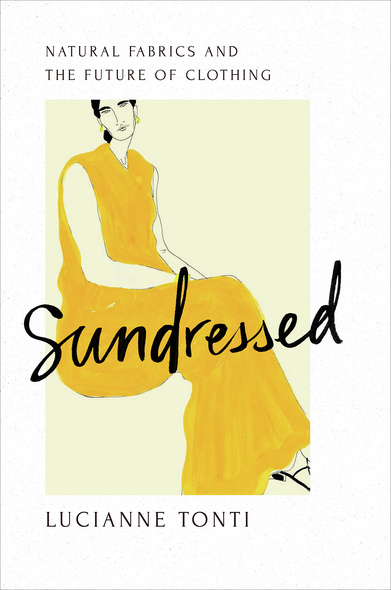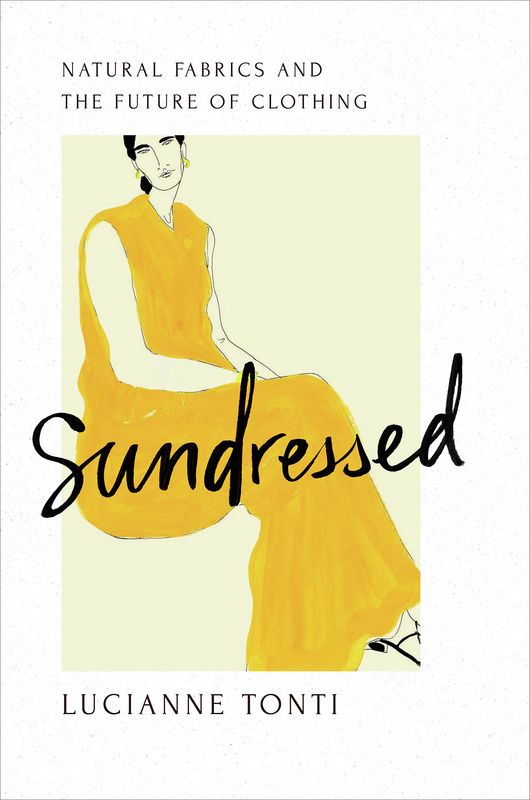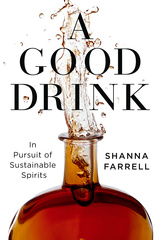Our shopping cart is currently down. To place an order, please contact our distributor, UTP Distribution, directly at utpbooks@utpress.utoronto.ca.
For conscious consumers, buying clothes has never been more complicated. Even as fashion brands tout their sustainability, the industry is plagued by pollution, waste, and poor working conditions. If our clothes reflect our values, is it possible to be truly well-dressed?
Sustainable fashion consultant Lucianne Tonti answers with a resounding yes. Beautiful clothes made from natural fabrics including cotton, wool, flax, and cashmere can support rural communities and regenerate landscapes. They can also reduce waste—but only if we invest in garments that stand the test of time rather than chasing fast fashion trends.
In Sundressed, Tonti travels the world to showcase producers who are reforming the industry, from Mongolian goatherders, to Mulberry groves in China, and American hemp farms. Many of these innovations begin in the fields, with the cotton crops that will ultimately be spun into a soft T-shirt or the sheep’s wool than will be knitted into a cozy sweater. Fiber farmers are taking a page from the regenerative agriculture movement, giving back to the land as they tend it. Meanwhile, further down the supply chain, top designers are working with Indigenous communities to relearn the artistry of sewing—and reward them financially. And global brands, including Levi’s, are working to produce a pair of jeans that can withstand dozens of washes without any sign of wear.
Tonti also shows readers how accessible sustainable fashion can be. Not everyone can afford a designer shirt that was lovingly hand-sewn. But most of us can buy less, choose natural fabrics over polyester, thrift shop, and wear our clothes longer.
Sundressed is an exploration of a revolution taking place in fashion. And it is a love letter to clothing that embodies beauty and value, from farm to closet.
Sustainable fashion consultant Lucianne Tonti answers with a resounding yes. Beautiful clothes made from natural fabrics including cotton, wool, flax, and cashmere can support rural communities and regenerate landscapes. They can also reduce waste—but only if we invest in garments that stand the test of time rather than chasing fast fashion trends.
In Sundressed, Tonti travels the world to showcase producers who are reforming the industry, from Mongolian goatherders, to Mulberry groves in China, and American hemp farms. Many of these innovations begin in the fields, with the cotton crops that will ultimately be spun into a soft T-shirt or the sheep’s wool than will be knitted into a cozy sweater. Fiber farmers are taking a page from the regenerative agriculture movement, giving back to the land as they tend it. Meanwhile, further down the supply chain, top designers are working with Indigenous communities to relearn the artistry of sewing—and reward them financially. And global brands, including Levi’s, are working to produce a pair of jeans that can withstand dozens of washes without any sign of wear.
Tonti also shows readers how accessible sustainable fashion can be. Not everyone can afford a designer shirt that was lovingly hand-sewn. But most of us can buy less, choose natural fabrics over polyester, thrift shop, and wear our clothes longer.
Sundressed is an exploration of a revolution taking place in fashion. And it is a love letter to clothing that embodies beauty and value, from farm to closet.
Each chapter deep dives into the history, present and possible future of a different natural fibre. Together they form a tapestry of possibilities for mending a broken industry. For those working in the rag trade it is essential reading; for everyone else, the book is a well-taught lesson in the true cost (and value) of clothing.'
Refreshingly, Tonti avoids the ideological, scolding tone often used by those concerned with sustainability issues. Even more, her love of fashion and good clothes shines through, injecting the narrative with an uplifting sense of optimism and purpose….Tonti’s insightful book shines light into the darker corners of the fashion business and points to new ways forward.
In prose as stylish as her fashion sense, Lucianne Tonti shows how a combination of love of clothes and love of nature can 'subvert the take-make-waste model that is driving fashion’s enormous environmental footprint'.
The prose is rich and compelling. It blends bits of personal narrative—such as discussing beloved garments—with broader stories of fiber and textile production and the cultures and artisans behind what people wear. The voice is smooth and inviting, devoid of judgment and full of wonder, making it both informative and delightful to read. The book has elegant diction and imagery, as of ‘a shirt made of flowers,’ that infuse its ideas with beauty and purpose.
A simply fascinating read...a seminal and unreservedly recommended addition to personal, professional, community, and academic library Green Fashion Textile Busiess collections and supplemental Environmental Economics curriculum studies lists.'
Lucianne Tonti begins her new book Sundressed with the simple statement ‘I love my clothes.’ That thought is pervasive throughout her book, as her bright, cheery prose is a pleasure to read even during coverage of severe environmental problems associated with the conventional manufacture of clothing. Importantly, she describes what could be done to enhance our pleasure from clothing while limiting environmental impact.’
Tonti offers a refreshing and personal perspective on the environmental impact of textiles. With her deep knowledge, love for fashion, and industry experience, Tonti weaves a compelling narrative that draws readers into a contemplative journey, urging us to consider the connection between our clothing and the earth from which it originates…. Sundressed is a breath of fresh air in the genre of environmental impact exploration. It encourages readers, particularly those with a passion for sewing, to reevaluate their fabric choices, provoking contemplation and inspiring conscientious decisions in our sartorial endeavors.’
Yes! Finally, someone talking about the importance of beautiful clothes and reduced consumption in the sustainable fashion conversation. This book will help you understand your clothes better, inspire you to love them longer, and reduce your appetite for newness.’
Lucianne Tonti clearly has a bone-deep understanding of why humans have always loved fashion: Because it makes us feel good. This book returns us to the origins of our passion for well-crafted fabrics that elevate our lives to art.’
An optimistic reminder that what we wear is not only deeply personal, but can also provide us with a deeper connection to nature and craftsmanship.’
The earth is the beginning and the end for all textile materials — it's time we started dressing like it.’
Lucianne Tonti has worked in fashion in Melbourne, Sydney, London, and Paris since 2008. In 2020 she launched the sustainable fashion site Prelude, profiled in Vogue. Lucianne holds a Bachelor of Communication, a Juris Doctorate, and a Postgraduate Diploma in Political Science. Her writing appears in The Guardian and she is the fashion editor of The Saturday Paper.






